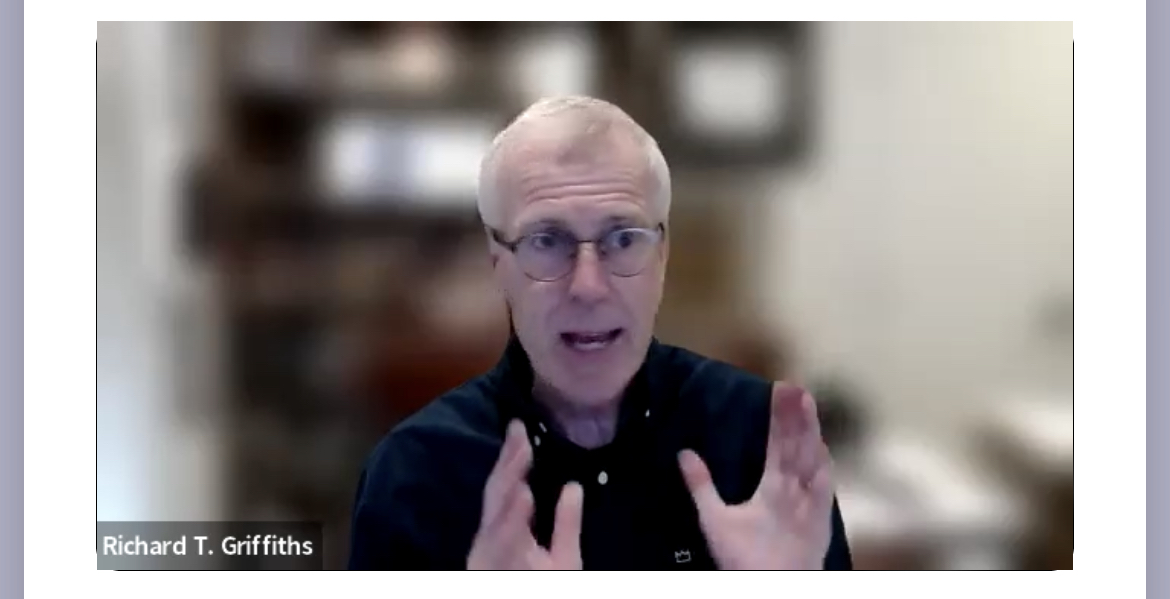
In remarks delivered to attendees at the National Freedom of Information Coalition's annual conference, NFOIC Open Government Heroes of the 50 States Hall of Fame inductee Richard Griffiths observed:
"[T]o maintain public access, the public must understand and support the value of open government."
Griffiths, a retired journalist, CBS and CNN producer, and president emeritus of the Georgia First Amendment Foundation, has committed his energies to expanding public understanding of, and support for, open government.
"[O]rganizations like the National Freedom of Information Coalition and the Georgia First Amendment Foundation ," Griffiths asserted, "must continue to beat the drum loudly.
"In recent years, not only has trust in government fallen to new lows, but – as we all know – also trust in journalism.
"It is in this space that my passions align perfectly.
"Like students in high school algebra class, Journalists must do more to show the quality of their work and the value of public records. How did we undertake this reporting? By filing Open Records Requests. How did we determine that water bills have not been paid on dozens of properties owned by the mayor and his family? By analyzing records obtained under Open Records requests. We wanted to explain the tax breaks for the new battery plant, but access to those public records was denied.
We need to do more to show our work and the role public records play."
"[A]s Edelman Public Relations points out in its annual Trust Survey, journalists have terrible levels of public trust. The only people with lower levels of public trust are ... government officials.
"Transparent government can build trust. Transparent journalism can build trust," Griffiths concluded.
To build trust, reporters must -- to borrow a hackneyed phrase -- "show the public the receipts."
Many Kentuckians have lapsed into smug certainty that -- fifty years after their enactment -- our open records and open meetings laws will always be around, when needed, to shine a light into the dark recesses of power.
They must open their eyes to the reality that Kentucky's open government laws have undergone -- and will likely continue to undergo -- steady erosion at the hands of feckless bureaucrats and hostile legislators.
Like the NFOIC and the Georgia First Amendment Foundation, the Kentucky Open Government Coalition has, for over five years, attempted to beat the drum loudly in support of open records and meetings and to "show the receipts" of its importance. This is why Richard Griffiths' remarks deeply resonate.
The coalition's mission has been to expand public understanding and awareness of Kentucky's open records and meetings law and to alert the public to the threats Kentucky's laws face.
Kentucky is fortunate in this regard. Working journalists, across the Commonwealth, loudly beat the drum for open records and meetings through their reporting. They regularly give a nod to the role Kentucky's open government laws play in investigating, developing, and reporting on stories of immense public interest -- injustices in our system of juvenile justice, gross police misconduct, legislative secrecy and abuse of power, economic development run amuck, public university subordination of truth and candor to "branding." They are remarkably skillful and self-aware practitioners of public records reporting.
Student reporters have played a vital role as well, employing the open records and open meetings laws to expose sexual harassment and misconduct on university campuses, lax enforcement of protocols governing fraternities, budget cuts resulting in the elimination of staff positions and programs, task forces tasked with recommending changes to "problematic" names and symbols on campus buildings behind closed doors, and, of course, various forms of administrative retaliation for their candor up to and including university lawsuits against their student newspapers.
And let's not forget the veteran reporters who navigated Kentucky's open records and meetings laws from their earliest days and were key figures in the development of an extensive body of Kentucky open government law. Many of them continue to "build trust through transparent journalism" in "post-retirement" reporting.
Their steady efforts "to show the quality of their work and the value of public records" serve to unite the public in opposition to daily bureaucratic efforts to frustrate public access and divest them of their half-century old right to know -- not to mention annual legislative assaults on public access laws.
Griffiths' remarks at the NFOIC annual conference come as a critical reminder at an opportune time: the 2025 Regular Session of the Kentucky General Assembly is less than two months away.
To maintain public access, members of the public -- far left, far right, and everyone somewhere in between -- must unite with the media to beat the drum loudly and send a strong message to Kentucky's lawmakers of shared support for the value of open government.


